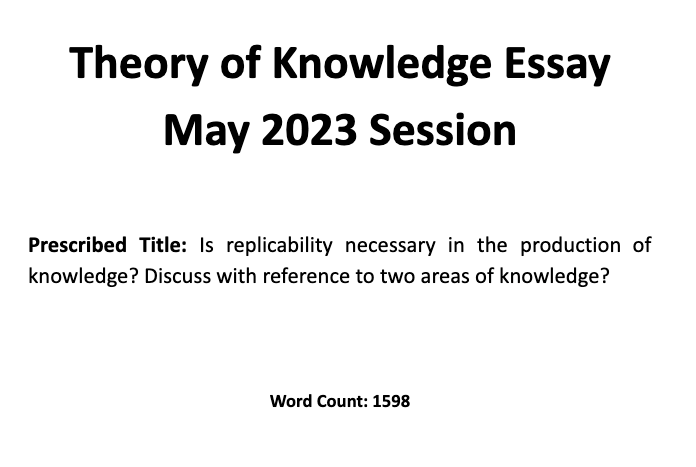IB TOK Essay 10/10 Sample: Is Replicability Necessary?
Is replicability necessary in the production of knowledge? Discuss with reference to two areas of knowledge.
Throughout time, knowledge has been continually produced, lost, and rediscovered, seemingly implying that a defining feature of knowledge is its nature to be replicated. But is this true for all types of knowledge? In this essay, "replicability" is defined as the ability to copy and reproduce something. "Necessary" is meant by essential, an interdependent relationship between two concepts with no substitutes. "Production of knowledge" is defined as a conclusion made by a knower accepted by the broader community. Hence, the question offers further queries: When is replicability desirable in producing knowledge in the natural sciences and arts? In what circumstances is replicability necessary to produce knowledge in the two areas of knowledge? Without replicability, can new knowledge still be produced?
In the natural sciences, replicability could be seen as desirable in knowledge production when used to validate or disprove knowledge. Knowledge in natural sciences could be seen as being acquired through empirical data made by a standardized method. Scientific knowledge can be disproved if the method is repeated and the results are not replicable. Disproving knowledge could be seen as a form of knowledge production, as a new conclusion is made from falsifying pre-existing knowledge. This follows the logic of Karl Popper's falsification principle, where non-science is separated from science through falsifying ideas (McLeod).

